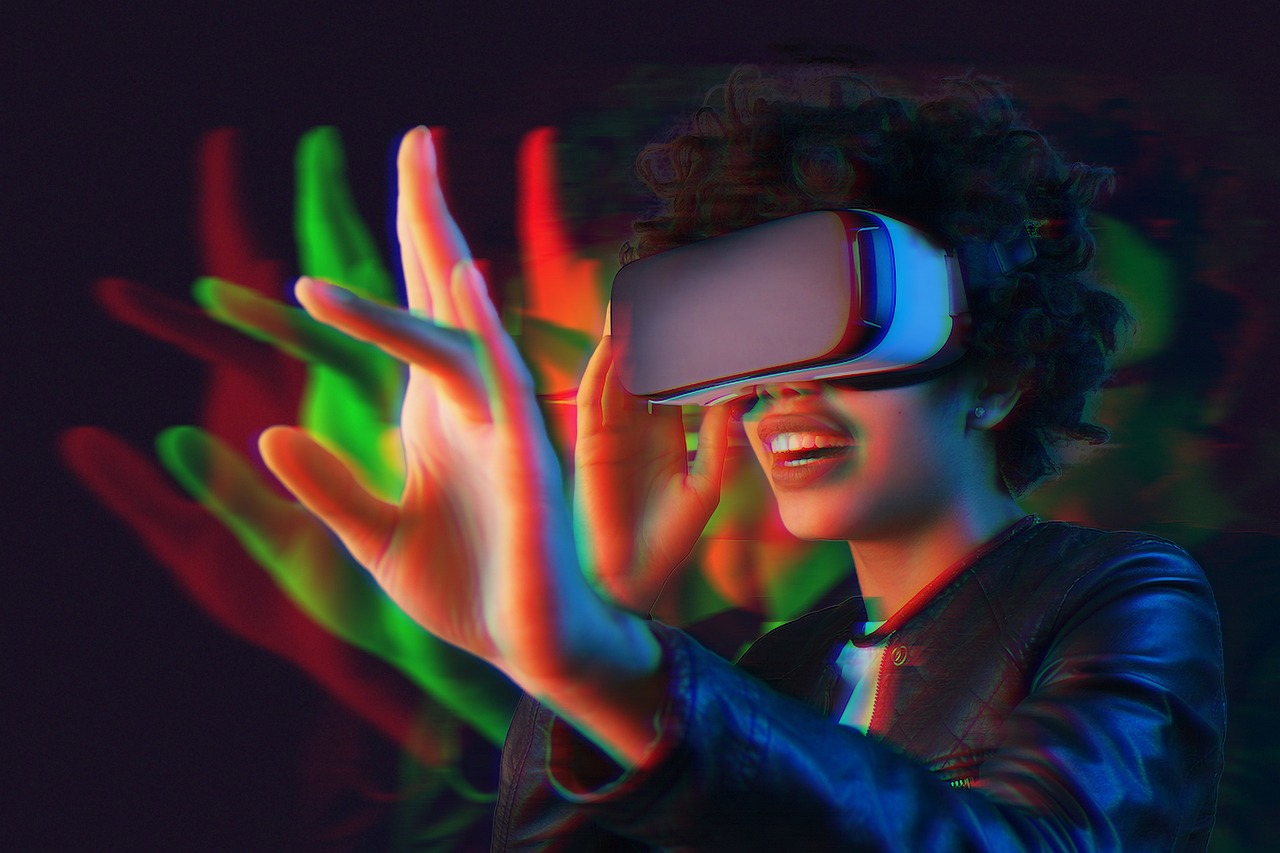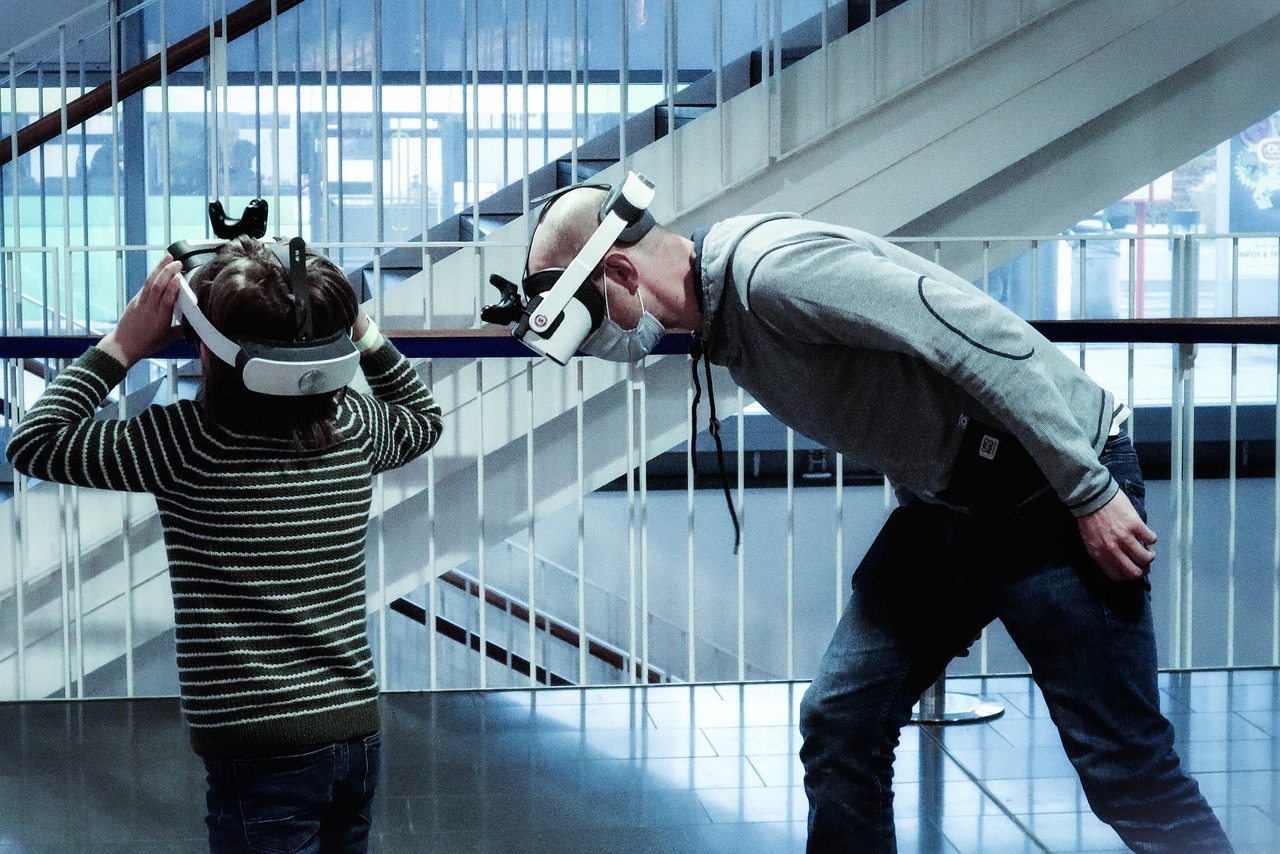Are Ontology and Reality Two Sides of the Same Coin?
When we dive into the depths of philosophy, we often stumble upon two intriguing concepts: ontology and reality. At first glance, they might seem like separate entities, but scratch the surface, and you'll find they are intricately linked, like two sides of the same coin. So, what exactly are these concepts, and how do they interact?
Ontology, the study of being and existence, serves as a foundational pillar in philosophical discourse. It asks the big questions: What exists? What does it mean to exist? These inquiries set the stage for understanding reality. On the other hand, reality encompasses everything that exists, whether we can perceive it or not. It's the grand tapestry of existence, woven from both the tangible and the intangible.
To illustrate this relationship, consider a coin. One side represents ontology—the theoretical framework that seeks to categorize and understand existence. The other side embodies reality—the actual state of things, complete with its complexities and mysteries. Just as you cannot have a coin without both sides, you cannot fully grasp reality without understanding its ontological underpinnings.
As we explore this topic further, we will examine how ontology informs our understanding of reality and vice versa. We will delve into the philosophical perspectives that shape these concepts, from realism to anti-realism and idealism, and how they influence our perceptions of the world around us. In doing so, we will uncover the profound implications these theories have for both philosophical inquiry and scientific exploration.
Ultimately, the relationship between ontology and reality is not just academic; it has practical implications that affect how we navigate our lives and understand our place in the universe. By examining this intersection, we can gain deeper insights into the nature of existence itself.
- What is ontology? Ontology is the philosophical study of being, existence, and the categories of being.
- How does ontology relate to reality? Ontology provides the framework to discuss what constitutes reality, shaping our understanding of existence.
- What are some philosophical perspectives on reality? Major theories include realism, anti-realism, and idealism, each offering unique interpretations of existence.
- Why is understanding ontology important? Understanding ontology helps clarify our beliefs about existence and informs various fields, including science and philosophy.

Understanding Ontology
Ontology, at its core, is the philosophical study of being and existence. It dives deep into questions about what entities exist, how they can be categorized, and the relationships between them. Think of ontology as the blueprint of reality, a framework that helps us understand not just what exists but also the nature of existence itself. It’s like trying to map out a vast, uncharted territory where each landmark represents a different concept of being.
To grasp ontology fully, one must consider several key concepts. First, let's talk about entities. These can be anything from physical objects like trees and cars to abstract concepts like love and justice. Ontologists strive to define and categorize these entities, asking questions like, "What does it mean for something to exist?" and "How do we differentiate between a physical object and an abstract idea?"
Another crucial aspect of ontology is the distinction between particulars and universals. Particulars are specific, individual entities, such as a single apple or a particular person, while universals refer to general qualities or categories that can apply to many particulars, like the concept of 'redness' or 'humanity'. This dichotomy plays a pivotal role in how we understand and classify the world around us.
Furthermore, ontology also examines the nature of properties and relations. Properties are the characteristics that define an entity, such as color, size, or shape, while relations explore how entities interact with one another. For example, the relationship between a teacher and a student is a fundamental ontological inquiry that raises questions about identity, roles, and existence in a social context.
In essence, ontology serves as a foundation for various philosophical inquiries. It influences fields such as metaphysics, epistemology, and even ethics. By understanding the principles of ontology, we can better navigate complex philosophical debates and apply these concepts to real-world scenarios. It’s like having a compass in a dense forest, guiding us through the intricate paths of existence and helping us make sense of our experiences.
As we delve deeper into ontology, it becomes clear that it’s not just an abstract discipline confined to the pages of philosophical texts. Instead, it has practical implications that resonate in our daily lives. For instance, consider how our understanding of identity affects our interactions with others. The ontological questions we grapple with shape our perceptions and influence our behaviors, making the study of ontology not just a theoretical pursuit, but a deeply personal one as well.

The Nature of Reality
When we dive into the concept of reality, we are stepping into a vast ocean of ideas that encompasses everything that exists—both the tangible and the intangible. It's like trying to catch a glimpse of the horizon; the more we explore, the more we realize how complex and layered reality truly is. At its core, reality is not just what we see with our eyes; it includes everything that exists, regardless of whether we can observe it or not. This understanding challenges us to expand our perception and consider various philosophical perspectives that shape our grasp of existence.
Different philosophical traditions offer unique interpretations of reality. For instance, physicalism asserts that everything is physical, and thus, reality can be explained through natural sciences. On the other hand, idealism proposes that reality is fundamentally mental or immaterial, suggesting that our perceptions shape our understanding of existence. This dichotomy raises fascinating questions: Is reality an objective truth waiting to be discovered, or is it a subjective experience shaped by our thoughts and feelings?
To further illustrate this point, consider the following perspectives on reality:
- Physicalism: Reality is entirely based on physical processes and entities.
- Idealism: Reality is constructed from mental perceptions and consciousness.
- Phenomenology: Reality is understood through individual experiences and interpretations.
These perspectives not only highlight the diversity of thought but also emphasize the importance of context in our understanding of reality. For example, the phenomenon of quantum mechanics challenges traditional notions of reality by suggesting that particles can exist in multiple states simultaneously until observed. This notion plays into the philosophical debate about whether reality exists independently of our observation or if our perceptions fundamentally influence it.
Moreover, the nature of reality is also deeply intertwined with human experiences. Our daily interactions, emotions, and thoughts all contribute to our understanding of what is real. It’s like looking through a kaleidoscope—each turn reveals a different pattern that, while unique, is still part of the same overarching reality. This interplay between subjective experience and objective existence raises critical questions about identity and existence itself.
In examining reality, we also encounter the concept of ontological categories, which help us classify and understand different aspects of reality. These categories can include:
| Category | Description |
|---|---|
| Physical Objects | Entities that exist in the physical world, like trees and rocks. |
| Abstract Concepts | Ideas that do not have a physical form, such as love or justice. |
| Events | Occurrences that take place in time and space, like a concert or a sunrise. |
Ultimately, the nature of reality is a multifaceted topic that invites us to ponder deeper questions about existence and our place in the universe. As we continue to explore these ideas, we find that reality is not merely a backdrop for our lives but an active participant in shaping our experiences and understanding. It’s a dynamic interplay of thoughts, perceptions, and the physical world, urging us to remain curious and open-minded in our quest for knowledge.
- What is the difference between ontology and reality? Ontology is the study of being and existence, while reality encompasses everything that exists, including both observable and unobservable entities.
- Can reality exist without human perception? This is a debated topic; some philosophies argue that reality is independent of human perception, while others suggest that our experiences shape our understanding of reality.
- How do different philosophical perspectives influence our understanding of reality? Different philosophies, such as realism and idealism, offer varying interpretations of reality, shaping how we perceive existence and our interactions with the world.

Philosophical Perspectives on Reality
When we dive into the philosophical perspectives on reality, we're stepping into a rich tapestry of thought, where each thread represents a different way of understanding our existence. It's almost like looking at a kaleidoscope; depending on how you turn it, you see a completely different picture. At the heart of this exploration are two major schools of thought: realism and anti-realism. These perspectives shape not just academic discussions but also how we navigate our everyday lives.
Realism posits that reality exists independently of our perceptions. Imagine walking through a forest; the trees, the birds, the rustling leaves—they all exist whether you're there to witness them or not. This viewpoint suggests that there is an objective world out there, waiting to be discovered. Realists argue that through scientific inquiry and observation, we can uncover truths about this world. They would assert that the laws of physics, for example, are universal and apply regardless of human thought or belief.
On the flip side, we have anti-realism, which takes a different stance. This perspective suggests that our understanding of reality is deeply intertwined with our experiences and perceptions. Think of it like watching a movie: the film exists, but your interpretation of it is shaped by your personal experiences, emotions, and even your mood on that particular day. Anti-realists argue that what we consider "real" is a construct influenced by our subjective experiences. This raises intriguing questions: Is there a single reality, or are there multiple realities shaped by individual perspectives?
Within these broad categories, we find a variety of nuanced theories. For instance, constructivism is a form of anti-realism that argues knowledge is constructed through social processes. It posits that our understanding of reality is a collaborative effort, shaped by language, culture, and historical context. In contrast, scientific realism holds that the entities described by science, such as electrons and black holes, exist independently of our knowledge of them. This ongoing debate between realism and anti-realism is not just academic; it has profound implications for how we approach everything from science to ethics.
To illustrate these philosophical perspectives further, consider the following table, which outlines key differences between realism and anti-realism:
| Aspect | Realism | Anti-Realism |
|---|---|---|
| Existence of Reality | Independent of perception | Dependent on perception |
| Truth | Objective and universal | Subjective and variable |
| Scientific Inquiry | Uncovering objective truths | Understanding subjective experiences |
As we navigate these philosophical waters, it's crucial to remember that both perspectives offer valuable insights. Realism provides a foundation for scientific inquiry and objective truth, while anti-realism invites us to consider the richness of human experience and the subjective nature of knowledge. This interplay between the two not only enriches our understanding of reality but also challenges us to think critically about our beliefs and assumptions.
Ultimately, the philosophical perspectives on reality remind us that our understanding of existence is a complex, evolving journey. Just like a well-crafted story, each perspective adds depth and nuance, allowing us to explore the myriad ways in which we can perceive and interact with the world around us.

Realism vs. Anti-Realism
When we dive into the philosophical waters of realism and anti-realism, we find ourselves navigating a complex sea of ideas about existence and perception. Realism is the belief that the world exists independently of our thoughts and perceptions. Imagine looking at a beautiful sunset; realism posits that the sunset would still exist even if no one were around to witness it. This perspective is grounded in the idea that there is an objective reality that can be observed and studied, much like a scientist examining the stars through a telescope. Realists argue that our senses, while sometimes flawed, provide us with a reliable means of accessing the world around us.
On the flip side, we have anti-realism, which challenges this notion by suggesting that our understanding of reality is deeply influenced by our subjective experiences. Think of it like this: if you’ve ever looked at a piece of artwork and had a completely different reaction than someone else, you’ve experienced anti-realism in action. This perspective posits that reality is not a fixed entity but is shaped by our perceptions, cultural contexts, and personal experiences. Anti-realists argue that what we consider ‘real’ is often a construct of our minds, molded by our interactions with the world.
To illustrate the differences between these two perspectives, consider the following table:
| Aspect | Realism | Anti-Realism |
|---|---|---|
| Definition | Belief in an objective reality that exists independently of perception. | Belief that reality is shaped by our perceptions and experiences. |
| Example | The existence of trees in a forest, regardless of whether anyone is there to see them. | The interpretation of a poem that varies from person to person based on individual feelings. |
| Philosophical Implications | Supports scientific inquiry and objective truth. | Encourages exploration of subjective experiences and cultural contexts. |
These opposing views not only shape philosophical discourse but also influence how we approach various fields, from science to art. Realism drives scientists to seek objective truths through experimentation, while anti-realism invites artists and philosophers to explore the depths of human experience and perception. So, which side of the coin do you find yourself leaning towards? Are you more inclined to trust the objective world around you, or do you believe that our experiences shape the very fabric of reality? The debate continues, reminding us that the nature of existence is as intricate as the minds that ponder it.

Idealism and Its Implications
Idealism is a fascinating philosophical viewpoint that posits that reality is fundamentally mental or immaterial. In essence, it suggests that what we perceive as the physical world is either a manifestation of our minds or dependent on our consciousness for its existence. This perspective challenges traditional notions of existence, which often prioritize the tangible and observable aspects of the world. Instead, idealism invites us to consider the profound implications of our mental constructs and perceptions in shaping what we deem to be real.
One of the most compelling implications of idealism is its challenge to the concept of an objective reality. If reality is indeed a product of our minds, then how do we reconcile differing perceptions among individuals? For example, two people might witness the same event but interpret it in vastly different ways. This raises intriguing questions about the nature of truth and the reliability of our senses. Are we merely experiencing a subjective reality, shaped by our thoughts and emotions? Or is there an underlying objective reality that exists independently of our perceptions?
Moreover, idealism has significant ramifications for various fields, including science, ethics, and art. In science, for instance, idealism encourages researchers to question the assumptions underlying their methodologies. If our understanding of the universe is intrinsically linked to our mental frameworks, then scientists must be cautious about claiming absolute truths based solely on empirical data. This perspective fosters a more nuanced approach to scientific inquiry, emphasizing the importance of context and interpretation.
In ethics, idealism suggests that moral values may not be universally fixed but rather shaped by cultural and individual perspectives. This can lead to a more relativistic view of morality, where ethical standards are seen as constructs of human thought rather than immutable laws of nature. Such a stance can foster greater tolerance and understanding among diverse cultures, as it acknowledges the validity of differing moral viewpoints.
Furthermore, in the realm of art and creativity, idealism highlights the power of imagination and the subjective experience of beauty. Artists often draw upon their inner worlds to create works that resonate with others on a deeply emotional level. This interplay between the mental and the material underscores the idea that our perceptions and interpretations can transform the mundane into something extraordinary.
In summary, idealism challenges us to rethink our understanding of reality and existence. By emphasizing the role of consciousness in shaping our experiences, it opens up a rich field of inquiry that intersects with various aspects of human thought and culture. Whether we are contemplating the nature of truth, morality, or creativity, idealism invites us to explore the profound implications of our mental landscapes on the world around us.
- What is idealism? Idealism is a philosophical viewpoint that asserts that reality is fundamentally mental or immaterial.
- How does idealism differ from realism? While realism posits that the world exists independently of our perceptions, idealism suggests that reality is shaped by our consciousness.
- What are the implications of idealism in science? Idealism encourages a more nuanced approach to scientific inquiry, emphasizing the importance of context and interpretation in understanding empirical data.
- Can idealism influence ethical perspectives? Yes, idealism suggests that moral values may be shaped by cultural and individual perspectives, leading to a more relativistic view of ethics.

Ontology's Role in Understanding Reality
Ontology plays a crucial role in our quest to comprehend reality. At its core, ontology is concerned with the nature of being and existence, which serves as the bedrock for many philosophical inquiries. When we ask questions like "What does it mean to exist?" or "What kinds of things are there?", we are engaging in ontological exploration. This exploration is not merely academic; it has profound implications on how we perceive and interact with the world around us.
To illustrate this connection, consider how ontology informs our understanding of various entities within reality. For instance, ontologists categorize entities into different types: physical objects, abstract concepts, and even social constructs. This categorization helps us to navigate the complexities of existence. By understanding that there are different kinds of beings, we can better appreciate the nuances of reality. For example, recognizing the difference between a physical object like a chair and an abstract concept like justice allows us to engage with both in meaningful ways.
Moreover, ontology influences our discussions about identity and change. When we ponder questions such as "What makes something the same over time?" or "How can something change and still remain the same?", we are diving into ontological territory. These questions are not just philosophical musings; they have practical implications in fields like law, ethics, and science. For example, in legal contexts, the identity of a person or object can determine rights and responsibilities, while in science, the classification of entities can shape research methodologies.
Furthermore, ontology provides a framework for discussing the nature of objects in the world. It prompts us to consider not just what exists, but how we understand existence itself. This is where ontology intersects with epistemology—the study of knowledge. By examining ontological questions, we can better understand the limits and possibilities of our knowledge. This interplay between ontology and epistemology is vital in fields such as artificial intelligence and virtual reality, where the definitions of existence and identity can become blurred.
In summary, ontology is not just an abstract philosophical discipline; it is a vital tool that shapes our understanding of reality. It helps us categorize and comprehend the myriad entities that populate our world, informs our discussions about identity and change, and provides a framework for exploring the nature of knowledge itself. Without ontology, our grasp of reality would be significantly diminished, leaving us adrift in a sea of uncertainty.
- What is the main focus of ontology? Ontology primarily focuses on the study of being, existence, and the categorization of entities.
- How does ontology relate to reality? Ontology helps us understand the different types of entities that exist in reality and informs our discussions about identity and change.
- Why is ontology important in philosophy? It serves as a foundation for various philosophical inquiries, shaping our understanding of existence and knowledge.
- Can ontology impact scientific research? Yes, the classification and understanding of entities can significantly influence methodologies and approaches in scientific inquiry.

The Intersection of Ontology and Reality
When we dive into the intriguing world of ontology and reality, it becomes clear that these two concepts are intricately woven together, like threads in a rich tapestry. Imagine trying to understand a painting without considering the canvas it’s painted on. Similarly, ontology provides the foundational canvas for our understanding of reality. But how do these two realms interact? What happens when we start to peel back the layers?
At its core, ontology asks the fundamental questions about what exists. It examines the nature of being, the categories of existence, and the relationships between entities. On the flip side, reality encompasses everything that we perceive, whether through our senses or through theoretical constructs. This intersection is not just an academic exercise; it has profound implications for how we navigate our lives and understand the universe.
One of the most fascinating aspects of this relationship is how ontological frameworks shape our interpretation of reality. For instance, consider the implications of different ontological positions:
- Realism: This perspective suggests that objects exist independently of our perception. It posits a reality that is objective and discoverable.
- Anti-Realism: Here, the emphasis is on the subjective nature of experience. Reality is seen as something that is constructed through our interactions and perceptions.
- Idealism: This viewpoint argues that reality is fundamentally mental or immaterial, challenging the notion of a physical world existing independently of our minds.
These positions not only influence philosophical debates but also have practical implications. For example, a scientist operating under a realist ontology may pursue objective truths about the universe, while one leaning towards anti-realism might focus on how social constructs shape scientific knowledge.
Moreover, the intersection of ontology and reality becomes particularly evident when we consider case studies in various fields. In the realm of science, the debate between particle physics and wave theory exemplifies how ontological assumptions can lead to different interpretations of reality. Depending on whether one views particles as discrete entities or as manifestations of wave functions, the understanding of matter changes drastically.
In the context of philosophy, consider the implications of ontology in discussions about personal identity. Are we merely collections of experiences and memories, or is there a deeper essence that defines our being? This question reflects the ontological inquiries that shape our understanding of what it means to be human.
Ultimately, the relationship between ontology and reality is dynamic and ever-evolving. As we explore new philosophical territories and scientific discoveries, our understanding of both concepts continues to deepen. The more we learn, the more we realize that ontology is not just a theoretical construct; it's a lens through which we can view and interpret our reality.
- What is ontology? Ontology is the philosophical study of being and existence, focusing on the nature and categories of being.
- How does ontology relate to reality? Ontology provides the framework for understanding what constitutes reality, influencing how we perceive and interpret existence.
- Why is the intersection of ontology and reality important? Understanding this intersection helps us navigate philosophical inquiries and practical implications in science and daily life.
- Can ontology influence scientific theories? Yes, ontological assumptions can shape scientific methodologies and interpretations of empirical data.

Case Studies in Ontological Analysis
When we dive into the world of ontology, it’s fascinating to see how theoretical concepts manifest in practical scenarios. One of the most enlightening ways to grasp ontological theories is through real-world case studies. These instances not only illustrate the principles of ontology but also highlight its relevance in understanding our existence and the universe at large. Let’s explore a few compelling examples that shed light on the intricate relationship between ontology and reality.
One striking case study is the debate surrounding the existence of abstract objects, such as numbers and properties. Philosophers like Platonists argue that these entities exist independently of human thought. They posit that mathematical truths are discovered rather than invented, suggesting a realm of abstract objects that underpins our understanding of reality. In contrast, nominalists contend that these entities are mere linguistic constructs, existing only within the frameworks we create. This clash of perspectives raises profound ontological questions: Are these abstract entities real, and if so, what does that mean for our understanding of existence?
Another compelling case study can be found in the realm of social ontology. This field examines the nature of social entities and their existence. For instance, consider the concept of a corporation. Is a corporation merely a collection of individuals, or does it possess an existence of its own? Ontologists debate whether social constructs like corporations, governments, and institutions have an independent reality or if they are simply the result of collective human agreement. This inquiry not only challenges our perceptions of reality but also influences legal, economic, and political frameworks.
In the field of science, ontological analysis plays a crucial role in shaping our understanding of the universe. Take the case of quantum mechanics. The ontological implications of quantum theory have sparked intense debate among scientists and philosophers alike. Does the wave function represent an objective reality, or is it merely a tool for predicting outcomes? This question highlights the tension between realism and anti-realism in the scientific realm, illustrating how ontological perspectives can significantly affect our interpretation of empirical data.
Moreover, the study of artificial intelligence (AI) provides another rich ground for ontological exploration. As AI systems become increasingly sophisticated, questions arise regarding their ontological status. Are these systems merely complex algorithms, or do they possess some form of consciousness? This inquiry not only challenges our definitions of being and existence but also raises ethical considerations about the treatment of intelligent machines. The implications of such ontological questions extend to technology, ethics, and the future of human interaction with machines.
In conclusion, these case studies underscore the importance of ontology in framing our understanding of reality. By examining abstract objects, social constructs, scientific theories, and technological advancements, we can better appreciate how ontological questions shape our perceptions and influence our lived experiences. Each case serves as a reminder that ontology is not just an abstract discipline but a vital lens through which we can analyze the world around us.
- What is ontology? Ontology is the philosophical study of being, existence, and the nature of reality.
- How does ontology relate to reality? Ontology provides the framework for understanding what constitutes reality, influencing how we perceive existence.
- Why are case studies important in ontology? They illustrate theoretical concepts in practical scenarios, enhancing our understanding of the relationship between ontology and reality.
- What role does ontology play in science? Ontology helps shape methodologies and epistemological approaches, influencing how we interpret scientific findings.

Implications for Science and Philosophy
The relationship between ontology and reality is not just an abstract philosophical exercise; it has profound implications for both science and philosophy. At its core, ontology helps to shape our understanding of what exists, providing a framework for scientific inquiry. For instance, when scientists formulate hypotheses, they are implicitly making ontological commitments about the existence of certain entities or phenomena. This interplay raises critical questions: What does it mean for something to exist? How do we determine the reality of a phenomenon that we cannot observe directly?
In the realm of science, ontology influences the methodologies employed in various fields. For example, in physics, the debate between realism and anti-realism can lead to different interpretations of quantum mechanics. Realists might argue that particles exist independently of observation, while anti-realists may contend that the act of measurement plays a critical role in determining the state of a particle. This fundamental disagreement can shape research agendas and the types of experiments that scientists prioritize.
Moreover, ontology intersects with philosophy by informing discussions about the nature of knowledge and existence. Philosophers often grapple with ontological questions to address epistemological concerns—how do we know what we know? For instance, the ontological status of abstract entities, such as numbers or concepts, prompts debates about whether they exist independently of human thought or are merely constructs of our minds. This leads to further inquiries about the implications of these views for our understanding of reality.
To illustrate the implications of ontology for both science and philosophy, consider the following table summarizing key points:
| Aspect | Science | Philosophy |
|---|---|---|
| Methodology | Influences experimental design and interpretation of results. | Shapes debates about knowledge and existence. |
| Interpretation of Reality | Realism vs. anti-realism affects theories in physics. | Challenges traditional notions of existence and understanding. |
| Abstract Entities | Questions about the existence of theoretical constructs. | Debates on whether abstract concepts exist independently. |
Ultimately, the implications of ontology for science and philosophy are vast and interconnected. As we explore the nature of reality, we must be mindful of how our ontological commitments shape our understanding of the universe. This ongoing dialogue not only enriches philosophical discourse but also enhances scientific inquiry, pushing the boundaries of what we consider to be real.
- What is ontology? Ontology is the philosophical study of being and existence, focusing on what entities exist and how they can be categorized.
- How does ontology relate to science? Ontology influences scientific methodologies by shaping the assumptions scientists make about the entities they study.
- What are the main philosophical perspectives on reality? Major perspectives include realism, anti-realism, and idealism, each offering unique interpretations of existence.
- Why is the relationship between ontology and reality important? Understanding this relationship helps clarify fundamental questions about existence and informs both scientific and philosophical inquiry.
Frequently Asked Questions
- What is ontology?
Ontology is the branch of philosophy that studies the nature of being, existence, and reality. It seeks to answer questions about what entities exist and how they can be categorized and related within a hierarchy. Think of it as the framework that helps us understand the different types of things that make up our universe.
- How does ontology relate to reality?
Ontology and reality are deeply intertwined; ontology provides the foundational concepts that inform our understanding of reality. While reality encompasses everything that exists, ontology helps us categorize and comprehend these entities, providing clarity on how they interact and relate to one another.
- What are the main philosophical perspectives on reality?
There are several key perspectives on reality, including physicalism, which asserts that everything is physical; idealism, which posits that reality is fundamentally mental; and realism, which argues that the world exists independently of our perceptions. Each perspective offers a unique lens through which we can examine existence.
- What is the difference between realism and anti-realism?
Realism suggests that the world exists independently of our thoughts and perceptions, meaning that objects and events are there whether we acknowledge them or not. In contrast, anti-realism holds that our experiences and perceptions shape reality itself, implying that what we understand as real is influenced by our subjective experiences.
- Can you explain idealism?
Idealism is the philosophical view that reality is primarily mental or immaterial. This perspective challenges traditional notions of existence by suggesting that the material world is a construct of the mind. It raises interesting questions about the nature of reality and how we perceive it, making us ponder whether what we see is truly there or simply a reflection of our thoughts.
- How does ontology influence scientific inquiry?
Ontology plays a crucial role in shaping scientific methodologies and epistemological approaches. By clarifying what entities scientists are studying and how they relate to one another, ontology helps establish the groundwork for scientific theories and experiments. It ensures that researchers have a clear understanding of the concepts they are working with, which is essential for making meaningful discoveries.
- What are some real-world examples of ontological analysis?
Real-world examples of ontological analysis can be found in various fields, such as biology, where scientists categorize living organisms into species, and in computer science, where data structures define how information is organized. These analyses help clarify our understanding of complex systems and the relationships between different entities within those systems.



















